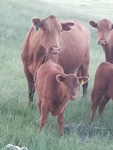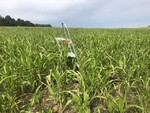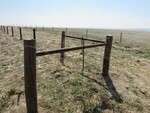Posted date: May 5, 2020
by: Admin My Local Life
1021 Views
SBA to Make Economic Injury Disaster Loans Available to U.S. Agricultural Businesses Impacted by COVID-19 Pandemic
Release Date: May 4, 2020
WASHINGTON – U.S. Small Business Administration Administrator Jovita Carranza announced today that agricultural businesses are now eligible for SBA’s Economic Injury Disaster Loan (EIDL) and EIDL Advance programs. SBA’s EIDL portal will reopen today as a result of funding authorized by Congress through the Paycheck Protection Program and Healthcare Enhancement Act. The legislation, signed into law by the President one week ago, provided additional funding for farmers and ranchers and certain other agricultural businesses affected by the Coronavirus (COVID-19) pandemic.
"For more than 30 years, SBA has been prohibited by law from providing disaster assistance to agricultural businesses; however, as a result of the unprecedented legislation enacted by President Trump, American farmers, ranchers and other agricultural businesses will now have access to emergency working capital," said Administrator Carranza. "These low-interest, long-term loans will help keep agricultural businesses viable while bringing stability to the nation's vitally important food supply chains."
Agricultural businesses include businesses engaged in the legal production of food and fiber, ranching, and raising of livestock, aquaculture, and all other farming and agricultural related industries (as defined by section 18(b) of the Small Business Act (15 U.S.C. 647(b)). Eligible agricultural businesses must have 500 or fewer employees.
The SBA will begin accepting new EIDL applications on a limited basis only, in order to provide unprecedented relief to U.S. agricultural businesses. For agricultural businesses that submitted an EIDL loan application through the streamlined application portal prior to the legislative change, SBA will move forward and process these applications without the need for re-applying. All other EIDL loan applications that were submitted before the portal stopped accepting new applications on April 15 will be processed on a first-in, first-out basis.
For more information, please visit: https://www.sba.gov/Disaster.
About the U.S. Small Business Administration
The U.S. Small Business Administration makes the American dream of business ownership a reality. As the only go-to resource and voice for small businesses backed by the strength of the federal government, the SBA empowers entrepreneurs and small business owners with the resources and support they need to start, grow or expand their businesses, or recover from a declared disaster. It delivers services through an extensive network of SBA field offices and partnerships with public and private organizations. To learn more, visit https://www.sba.gov.







